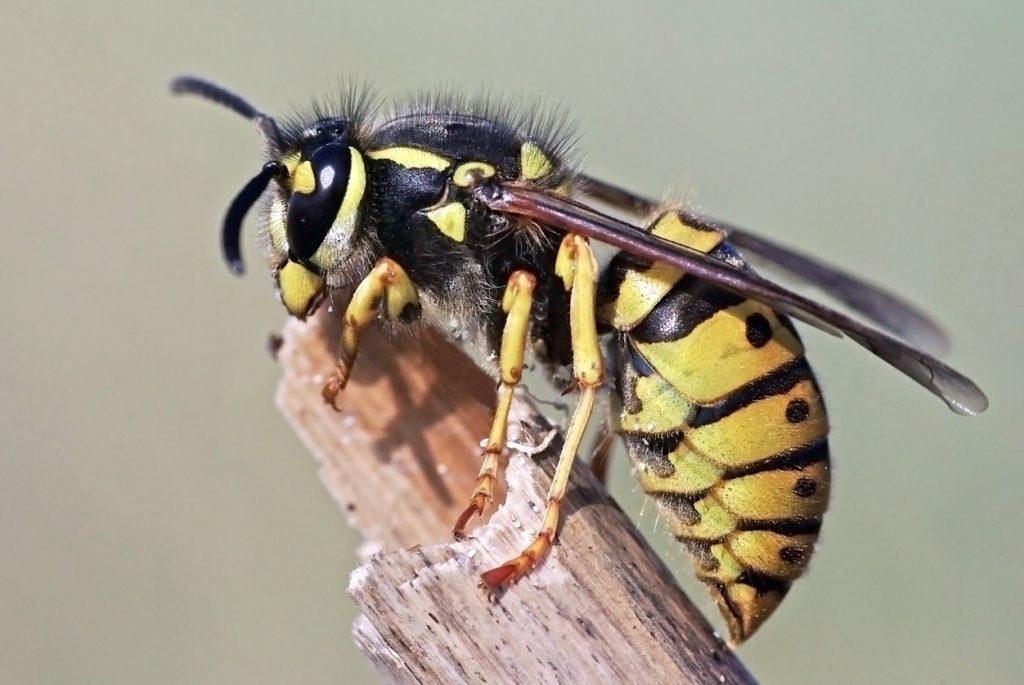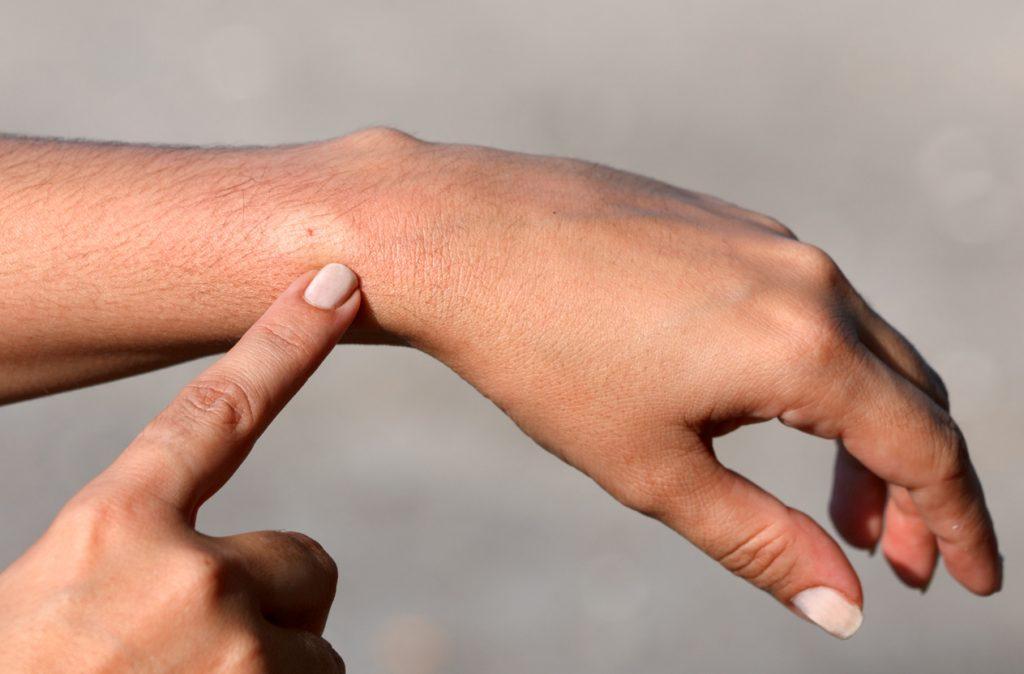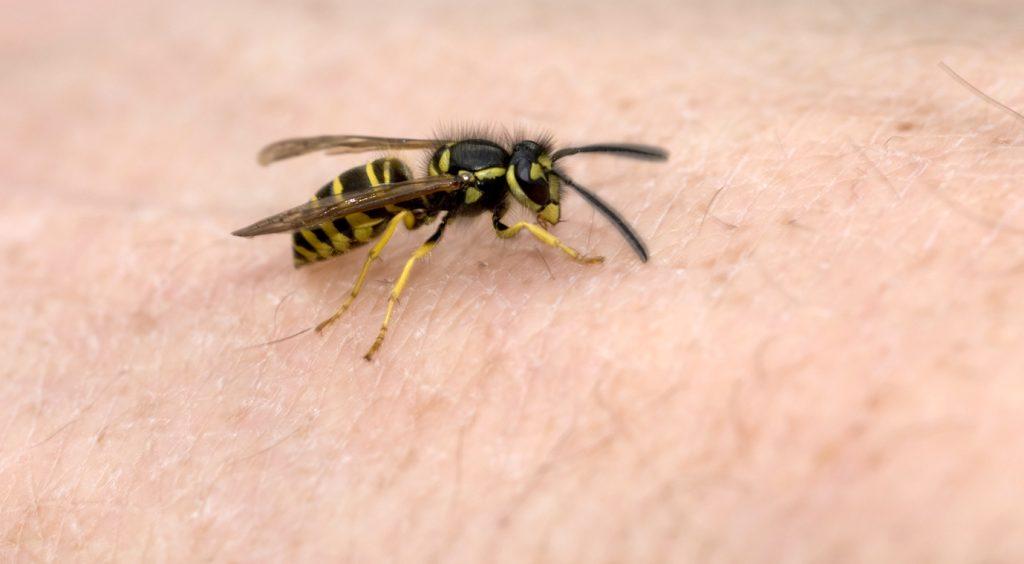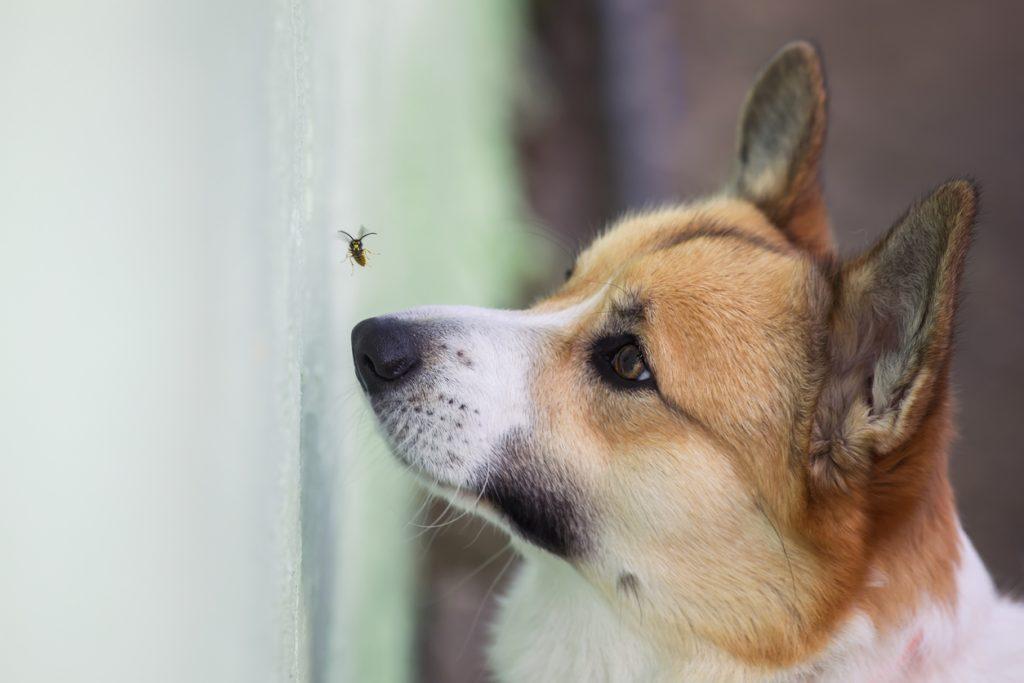How To Treat A Wasp Sting
Of all the insects that we’re likely to encounter here in the UK, the ones that can cause the most panic are wasps. Not only are they a nuisance if you’re trying to relax in the garden at home, but they’re also a real pain for businesses over the summer months who want to attract customers to their outdoor areas.
The reason for all the ducking, dodging and diving from wasps? It’s their sting.
As one of only a few stinging insects native to our shores – but an all too common one – it’s worth knowing how to treat a wasp sting to limit the pain and inconvenience. It’s especially useful in the later months of September and October when they can become more aggressive.
This month at Pest Defence, we’ll help you get to grips with wasps stings — read on to find out more.

What does a wasp sting look like?

A wasp sting isn’t hard to miss, as you’re likely to feel it immediately and spot the offending insect. Most people experience a few visual symptoms of a wasp sting, including a small bump or swelling around the area and redness or irritation.
You can also expect to feel a short, sharp pain that develops quickly into a burning sensation. The level of reaction you have will vary, but symptoms are likely to be much worse if you are allergic to wasp stings, something we’ll cover later in our section titled ‘When should I be concerned about a wasp sting?’.
If you’ve been stung by a wasp, there are a few things you can try to treat it with:
- Take an antihistamine for the inflammation and to reduce the risk of a reaction
- Use a cold compress or ice to reduce the swelling
- Onion juice, vinegar and warm salty water have all been known to help with the pain and inflammation of a wasp sting
- Use an anti-inflammatory ointment from your local chemist
With any of our wasp sting treatment suggestions, always be sure to check with a medical professional before taking or using any medicinal products. Your local chemist may be able to advise you on the best product for the treatment of wasp stings.
Wasp sting facts
It’s handy to learn some interesting facts about wasp stings, as it could help you in your effort to avoid them in the future:
- Wasps like sugary foods and drinks – Keep your garden clean and tidy away any empty glasses and plates to avoid attracting them.
- Wasps don’t leave their stinger behind – Unlike bees, wasps don’t leave their stinger in you, which means they can fly away again or sting multiple times.
- Late summer/early autumn is a changing phase – Wasps get more aggressive around this time as the workers will have fewer insects to eat and the queen ceases to create the pheromone that keeps them on task, forcing them to seek sugar elsewhere.
- Workers create pheromones themselves – They produce this pheromone when they feel threatened, which alerts other wasps nearby, so avoid flapping at them!
- Around 2-9 people die each year from allergic reactions to wasp and bee stings in the UK – This is according to the National Institute for Health and Clinical Excellence (NICE)
- Wasp stings contain a range of peptides and enzymes – This is what breaks down your cells and causes pain.
- There are three common types of wasp in the UK to look out for – These are the German wasp, the European hornet and the yellow-legged Asian hornet. The German wasp is the most common and is sometimes known as a yellow jacket.
How long does a wasp sting last?
Depending on the severity of the sting, how many times you were stung and your predisposition to an allergic reaction, a wasp sting can cause several hours of pain and discomfort, with around 48 hours of swelling and redness.
If you’re still experiencing symptoms after this point or if you suffer any of the symptoms from our next section, then you should seek immediate assistance.
When should I be concerned about a wasp sting?

Do wasp stings hurt? Yes, initially – especially for children – but you only really need to be concerned if you notice a severe reaction or if the person goes into anaphylactic shock due to an allergy. Some signs to look out for that should alert you to this are:
- If they have difficulty breathing/are wheezing
- If they experience nausea and vomiting
- If they experience diarrhoea
- If their face or mouth begins to swell
- If they cannot swallow regularly
If you know you have a wasp sting allergy, it’s important to carry an emergency kit with antihistamines and other various pharmaceutical items like adrenaline spray or cortisone preparations.
What to do if your pet is stung by a wasp

Our pets can get into all sorts of trouble while roaming outdoors, which puts them at just as much risk of getting stung by a wasp. This is especially applicable to dogs, who love to poke their curious noses around in the garden and on walks.
If you notice that your pet is limping, whining, pawing or biting at a sting, or has visible swelling, it could be a sign that they’ve been stung. Wasp stings on dogs are likely to cause them some distress also, but it’s important not to panic.
As with humans, you should wash the affected area and apply ice to help soothe any swelling, but be sure not to make them uncomfortably cold. If an allergic reaction takes place (again, with similar symptoms to humans), you should seek advice from your vet, as human antihistamines may not be safe for them to take.
Are wasps making your life difficult? The heavy presence of wasps can indicate that there is a nest on your property. Whether they’re ruining your family’s enjoyment of the garden or you have outdoor seating for your business but wasps are scaring customers and guests away, we provide safe and professional wasp nest removal here at Pest Defence.
With decades of experience and a fully accredited team, you can rely on us to tackle your wasp problem for you, without having to put anyone at risk. We remove wasp nests from homes, gardens and business premises across London and Essex – including Colchester, Chelmsford and Brentwood.
Call today for expert assistance in ridding your property of wasps.


